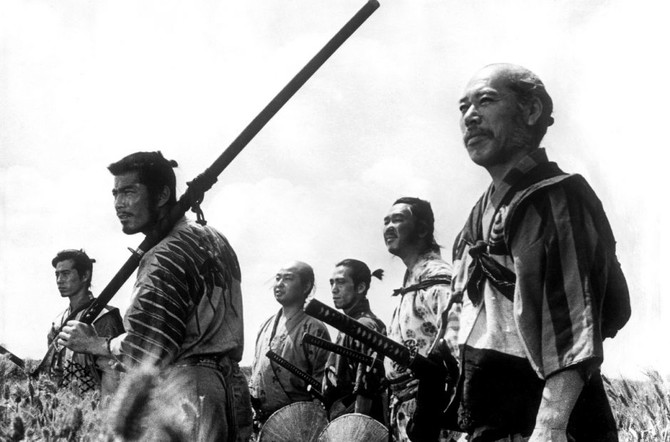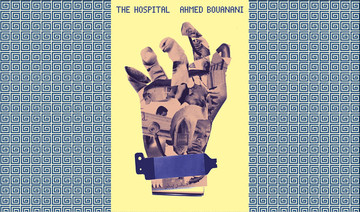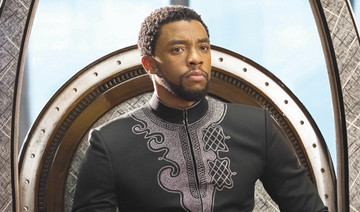CHENNAI: It is simply amazing that a first-time film director, Akarsh Khurana, although he has a long record in charge of theatrical plays, could have handled the morbid subject of death and loss in such a breezy, subtly witty way in “Karwaan.” It’s a moving story by Bijoy Nambiar and an utterly believable screenplay by Khurana. The film’s trump card is Irrfan Khan, who proves to be the very soul and spirit of this road movie.
Portraying Shaukat in his usual quiet, lighthearted but mesmeric manner (with some of the best lines), Khan steers his ramshackle van through the winding roads of southern India, criss-crossing the Blue Mountains, calm rivers and picturesque Kerala landscape. But this hides an ominous tale: of a horrific accident on the Himalayas, and two dead bodies, each handed over to the wrong relative. Avinash (Dulquer Salman), who hates his father so much that he cannot even grieve his death, gets the body of Tanya’s (Mithila Palkar) grandmother. And the father’s corpse goes to Tanya’s family in Kerala.
When Avinash finds out about the blunder committed by a transport company, he seeks his friend Shaukat’s help to take the grandmother’s coffin to the right address. On the way, the two men fetch Tanya from her college hostel, and then a hilarious journey begins. Shaukat’s lack of English leads to rib-tickling fun, and his electrifying presence and sharp sarcasm are a marvel to watch.
Salman is wonderful as well as a son estranged from his bossy father who does not let him pursue his passion for photography, but he seems a little uncomfortable in Hindi and often breaks into English. However, he manages to convey cowardice and loss with amazing ease. Tanya is a modern girl for whom sex and pregnancy are no big deal, but her character could have had more substance.
One of the finest films I have seen in a long time, “Karwaan,” while having a novel plot, sparkles all the more because of Khan, whose magnetism rubs off on his co-stars, and we see a delightfully natural and understated performance from Salman, too.
‘Karwaan’ is a road movie with a spirited driver
‘Karwaan’ is a road movie with a spirited driver

Kurosawa’s ‘Seven Samurai’ was the East’s answer to an American Western

DUBAI: To the casual moviegoer, “Seven Samurai” can appear a daunting prospect. A three-and-a-half-hour, 60-year-old, black and white samurai story set in 16th-century feudal Japan – it seems to be the ultimate in film-buff nicheness. The fact that Akira Kurosawa’s 1954 epic features regularly on “Best Films Ever” lists might say more about the kind of people who vote in such polls than the movie itself.
Like the impenetrable later works of James Joyce, it seems probable that many copies of “Seven Samurai” remain unopened. I was certainly guilty as charged — my DVD copy lurked at the bottom of a “to watch” pile for almost a decade.
How wrong my preconceptions of pretension proved to be. More so than its much-touted technical triumphs, “Seven Samurai” first and foremost offers an easily digestible, audience-pleasing tale that gallops along with the pace of an epic adventure, driven by the force of a universal moral fable. This movie is long but never slow.
Besieged by bandits, desperate peasants entice hungry, out-of-work “ronin” samurai warriors to protect them, a gang led stoically by veteran actor Takashi Shimura. Filmed during a year-long harvest, and costing four times its initial budget, the film is more concerned with building unlikely, cross-caste relationships – among and between the outcasts and their suspicious hosts – than the redemptive, rain-and blood-soaked climax.
Much has been written of Kurosawa’s debt to – and influence on – the American Western. This film’s sincere mix of action, heroism, camaraderie and slapstick are certainly straight out of the playbook of director John Ford, Hollywood’s master of the genre. It also mirrors the clear moral dynamic found in early examples of the genre — the age-old battle of good versus evil — along with other elements such as a deep respect for the land and an affecting, affirmative sense of brotherhood. All of this is intertwined with a distinctly Eastern sense of hierarchy and honor, at a time when Japan was struggling to redefine both.
Six years after its release, “Seven Samurai” was successfully remade in Hollywood as “The Magnificent Seven” – the first of three Kurosawa pictures given the Hollywood Western treatment. The original was not only never bettered, it was destined never to be forgotten.












